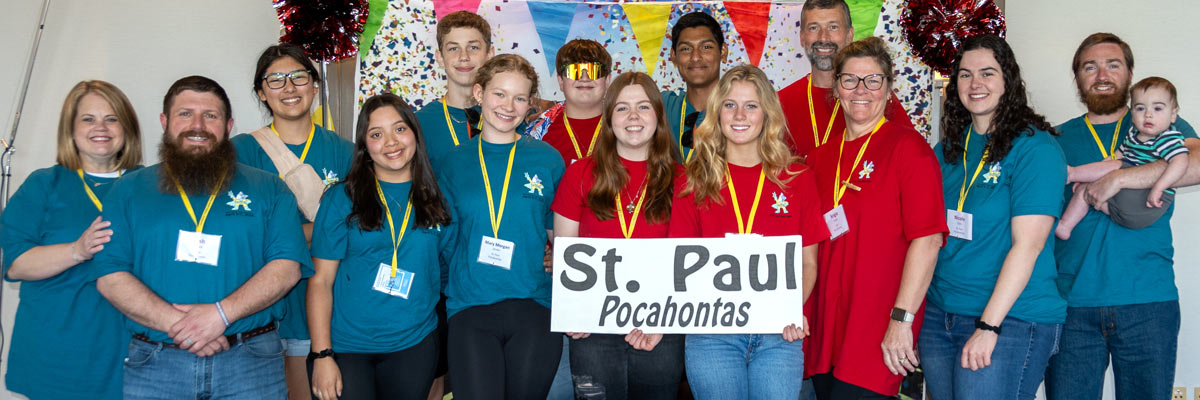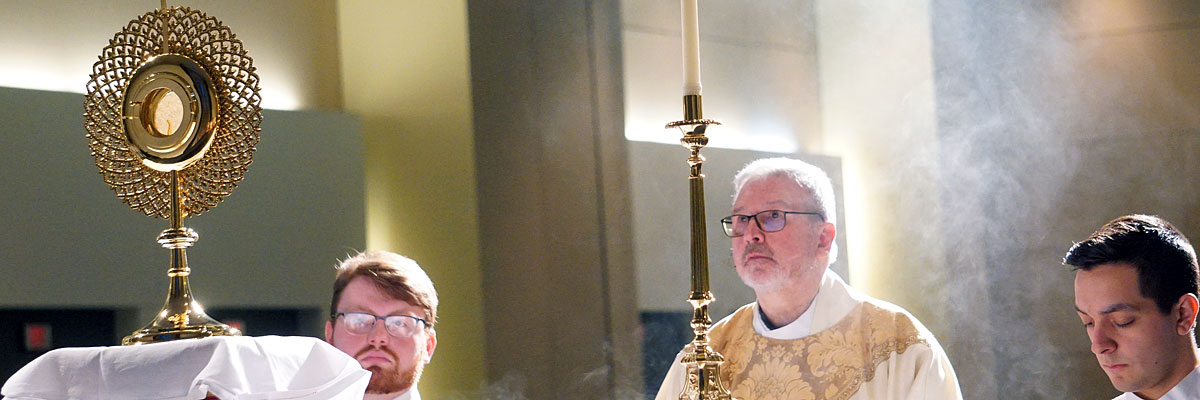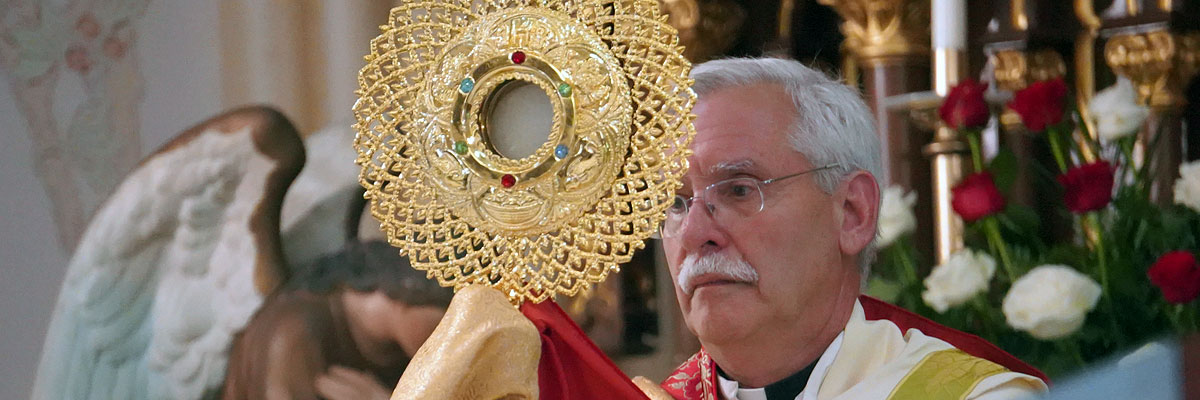Official Website of the
Catholic Diocese of Little Rock
15th Sunday in Ordinary Time, Year A
Published: July 13, 2014
Bishop Anthony B. Taylor preached the following homily at St. Rose of Lima Church in Carlisle on Sunday, July 13, 2014.
Download MP3 file to your device

Bishop Taylor
When I was in high school I was on a 4-H land judging team. At that time the 4-H Club ("head, heart hands and health") focused on agricultural activities. Our land judging team had to determine: 1.) the depth of the topsoil, 2.) the topsoil and subsoil types — loam, clay, sand, rocks, etc., 3.) the slope of the land and the resulting drainage patterns: Was it too flat to drain or too steep to absorb much water? Was it on a flood plain? Was there evidence of erosion? The purpose of land classification is to guide farmers in the selection of crops for which the land is best suited.
In today's Gospel Jesus tells the story of a man who needs to have a word with his county extension agent. He's planting seed on land for which it is not suited: hard footpaths, rocky ground, land not yet cleared of weeds. He doesn't judge the land before planting: the land will judge itself by whether it produces and how much. That's what Jesus does. He spreads the seed of God's Word everywhere without distinction in the hope that at least some of it will produce.
Since our heart is the soil in which the Lord plants his Word, it is important for us to do a little land judging of our own: what is the state of our soul? What obstacles do we need to remove so that God's word can take root in us, grow steadily and eventually produce an abundant harvest? In today's Gospel Jesus refers to three obstacles: superficiality, cowardice and materialism.
We must break up the hard packed soil of resistance that produce superficiality instead of understanding
Superficiality: The seed that fell on the path couldn't break through the surface of the hard packed dirt, so never sprouted and was carried off by the birds. Jesus means that unless we live the faith in a more-than-superficial way, religious predators will come along and carry off "what has been sown in our hearts." That's what's happened to many people in our own lifetime! If we don't know what we believe, we won't know how to answer those who try to talk us out of our faith. Culpable ignorance is the failure to live according to what we should have known because we just don't care. Such superficiality has eternal consequences: "the birds came and ate it up."
Cowardice: The seed that fell on rocky ground it penetrated the surface but could not put down roots and so withered in the heat of the day — it had no source of strength to draw on in time of crisis. Jesus says: "He who has no root lasts only for a time." Life will at some point demand of us more courage than we have in ourselves alone. Culpable apathy is the failure to develop the spiritual strength we should have developed because being virtuous just isn't all that important to us. Such cowardice has eternal consequences: "When some tribulation or persecution comes because of the Word, he immediately falls away."
Materialism: The seed that fell among weeds couldn't compete with all those weeds and so bore no fruit. In the same way, the seed of God's word will not thrive in us if it has to compete for our attention with all the demands and allurements of this world — what Jesus calls "worldly anxiety and the lure of riches" which choke off God's word and render us spiritually sterile. According to Jesus, one of the most dangerous weeds in the garden of the human soul is materialism: the lure of riches, which invariably chokes off the harvest of goodness that God so much wants us to produce.
But thank God, some of the seed falls on rich soil, which represents "those who hear God's word and understand it and bear fruit a hundred or sixty or thirtyfold." Since the land judges itself by whether it produces and how much, it behooves us to do all in our power to cultivate the soil of our inner garden so that we produce for the Lord the most abundant harvest possible. This means that we must break up the hard packed soil of resistance that produce superficiality instead of understanding. We must clear our inner garden of the rocks of apathy that block access to the strength and courage we so much need if we're going to be courageous in times of trial. And we must pull up the weeds of materialism and worldly anxiety that will otherwise choke off the harvest we could have produced. The Lord has planted his word in your heart. If you prepare the soil, it will produce abundantly — but if you don't, it won't. And you will be judged accordingly.









